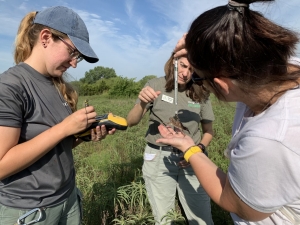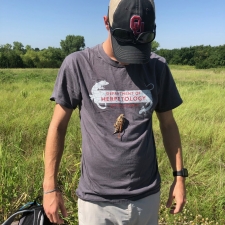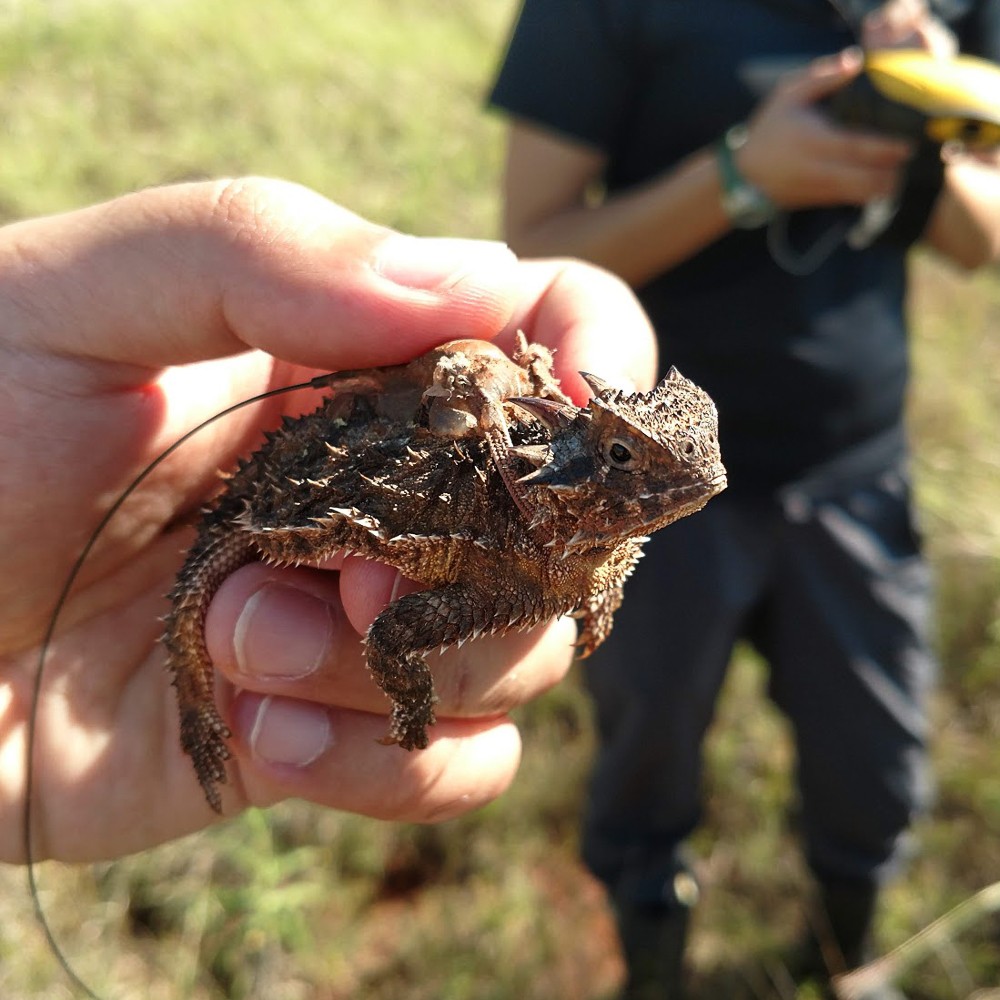The Sam Noble Museum at the University of Oklahoma is partnering with the Oklahoma City Zoo and Botanical Garden to prevent the silent extinction of an iconic species: The Texas horned lizard. Once a common sight across much of the state, this species has become increasingly rare as its habitat has been lost and fragmented due to urbanization and other factors.

Samuel Eliades, a third-year ecology and evolutionary biology Ph.D. student at the University of Oklahoma and researcher at the Sam Noble Museum, is leading a National Science Foundation-funded study to improve the species’ survival rates.
“Horny toads in Oklahoma are in the midst of a silent extinction,” Eliades said. “This was a species so common that – until they started vanishing – no one bothered to study them. We are still playing catch up to try to understand this complex and interesting lizard.”
Eliades has been assisting in Texas horned lizard tracking and population monitoring at Tinker Air Force Base for two years. He has received $40,000 in funding support from the National Science Foundation INTERN program to study the species with the assistance of his advisor and museum curator Dr. Cameron Siler. Eliades’ research at the Zoo’s Lizard Lab will be overseen by Rebecca Snyder, OKC Zoo curator of conservation and science, and Brad Lock, OKC Zoo curator of herpetology.

The goal of the research is to both raise and release the lizards back into the wild with a greater chance of survival, and to study their gut bacteria to better understand how being raised in human care influences the animals and can better prepare them for survival in the wild.
To learn more about the Sam Noble Museum, visit https://samnoblemuseum.ou.edu/. Learn more about the Lizard Lab and how you can contribute to conservation at the Oklahhoma City Zoo here.



